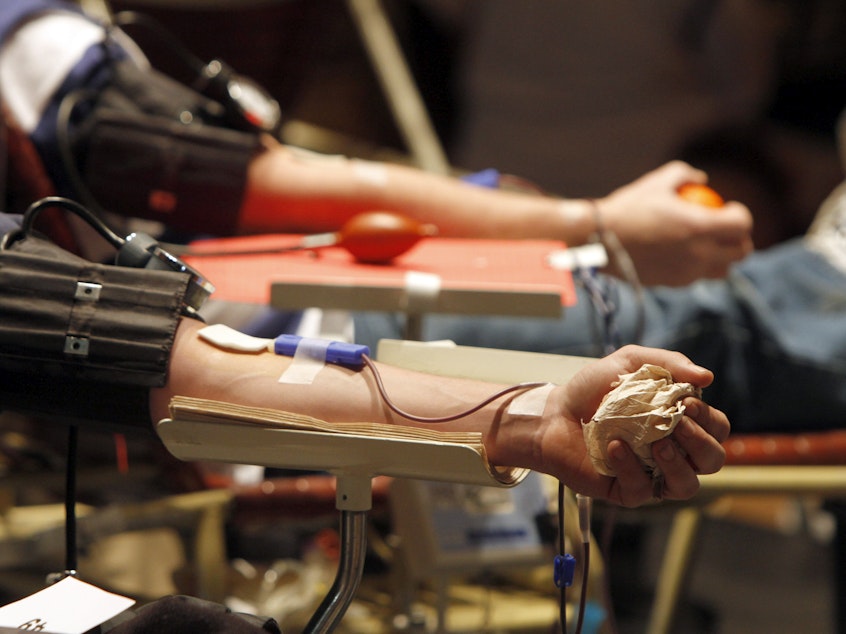FDA moves to ease restrictions on blood donations for men who have sex with men

The U.S. Food and Drug Administration issued proposed guidance Friday to ease restrictions on blood donations by men who have sex with men.
The change is expected to take effect after a public comment period.
Updated January 27, 2023 at 11:05 AM ET
The restrictions on donating blood date back to the early days of the AIDS epidemic and were designed to protect the blood supply from HIV. Originally, gay and bisexual men were completely prohibited from donating blood. Over time, the FDA relaxed the lifetime ban, but still kept in place some limits.
Under the current policy — last updated in 2020 — men who have sex with men can donate blood if they haven't had sexual contact with other men for three months.
Sponsored
The new proposed policy would eliminate the time-based restrictions on men who have sex with men (and their female partners) and instead assess potential donors' eligibility based on a series of questions that assess their HIV risk, regardless of gender. Anyone taking medications to treat or prevent HIV, including PrEP, would not be eligible.
The risk assessment would include questions about anal sex. Potential donors who've had anal sex in the last three months with a new sexual partner or more than one sexual partner would not be eligible to give blood.
The changes are aimed at addressing criticism that the current policy is discriminatory and outdated, as well as one more barrier to bolstering the nation's blood supply. Blood banks already routinely screen donated blood for HIV.
In crafting the new guidance, the FDA has been looking to the results of a study of about 1,600 gay and bisexual men to develop screening questions that can identify potential donors who are most likely to be infected with HIV.
For many years, the American Medical Association, the American Red Cross and LGBTQ+ advocacy groups have been pushing for a change to the federal rules on blood donations.
Sponsored
"It's a discriminatory policy that assumes that HIV is a gay disease, and it is very much not," Tony Morrison from the group GLAAD, told NPR in December. "This is what we have been advocating for for many, many years." [Copyright 2023 NPR]



